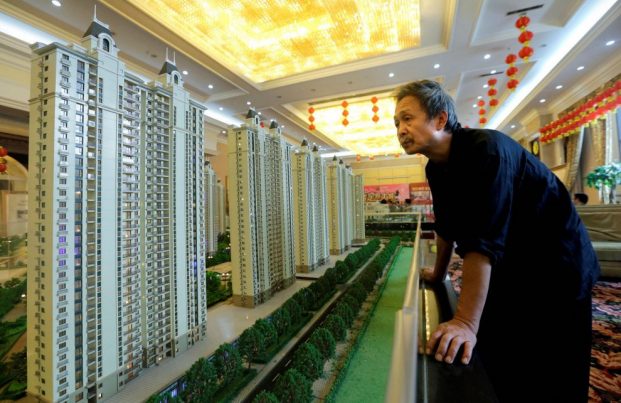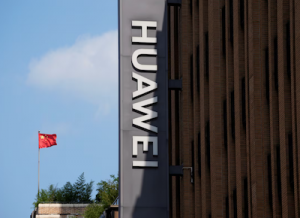(AF) China Evergrande Group may default on one or more debt payments this week, but would the knock-on effects set the Chinese economy into a downward spiral as some fear?
Unlikely, says ratings company S&P Global, which argues the repercussions will be neither a “tidal wave” nor “ripples from a pebble in a pond” but “somewhere in between.”
Evergrande is the world’s most indebted private company and the fate of many thousands of properties and projects depend on the settlement of its financial woes. It has liabilities of almost 2 trillion yuan ($302 billion) that it owes to banks and other lenders, many of whom have already begun making provisions for losses, should the developer default and go bust.
Many analysts, including those at Nomura, have predicted significant consequences if Evergrande collapses and drags down China’s property sector. Concern that the contagion could spread across the economy has caused stock markets around the world to tumble. But S&P is relatively more sanguine.
“The hit to the financial system from Evergrande alone will be manageable,” the company said in a report written by analysts led by Matthew Chow in Hong Kong. Here are its key takeaways:
Not Catastrophic
Evergrande is due to make a number of interest repayments tomorrow and is unlikely to meet them, S&P argues. That coincides with a restructuring by similarly troubled state-owned asset management giant China Huarong, viewed as another systemic risk.
Despite not expecting China to offer any direct bailout to Evergrande, S&P forecasts the contagion will be far from catastrophic. Its default will cause some complications, however.
In the property sector, some weaker companies have already been hurt – among them Central China Real Estate and Fantasia Holding, which have been downgraded by S&P because of funding logjams caused by Evergrande’s debt problems.
Additionally, contractors and suppliers, many of whom have already been hit by cancelled Evergrande projects, are likely to suffer further as the developer retrenches its operations.
But S&P argues these effects would be minimal.
The market is still willing to lend to solid companies and even the smaller ones have begun taking measures to mitigate any fallout, the report said.
Also, the hit to property prices is expected to be “slight” and the impact on construction companies and engineering firms that depend on the property developers for business will be “manageable” because Evergrande’s market share is “relatively small.”
Banks Exposed
The impact on the banking system is harder to gauge, the report states, but not expected to be devastating.
“The Chinese banking sector can digest an Evergrande default with no significant disruption, although we will be mindful of potential knock-on effects,” it said.
Lenders’ exposure to Evergrande via loans and bonds stood at 571 billion yuan at the end of June, a tiny proportion of the 160 trillion yuan of outstanding loans owed to banks. But direct exposure was down to 400bn yuan from 604bn yuan in 2019.
Complications are likely to come if other highly indebted large developers also go bust. With 8% of banks’ loans tied to the property sector, such a scenario “could evolve into a challenging situation.”
At its worst, the central bank estimates that non-performing loan ratios among developers could increase by 15 percentage points. That’s “no small hit,” the report said, with current NPL ratios just shy of 2%. If Evergrande defaulted, some banks would suffer and have to deal with a lot of repossessed properties.
In the Shadows
Another threat lurks in hidden debt, that’s kept off balance sheets and largely unknown to accountants and analysts. This includes capital held in wealth management products and joint ventures, which would also be considered a liability should Evergrande file for bankruptcy. If the sums were sizeable, the final debt tally could tip a default into a crisis.
The government is unlikely to allow matters to go that far, however, S&P says.
Beijing will be keen to show it can manage financial crises prudently without damaging fundamental trust in its governance or markets. For that reason, the government won’t bail out Evergrande and instead will oversee a managed restructuring or bankruptcy, the report said.
“A government bailout would undermine the campaign to instill greater financial discipline in the property sector,” it stated.
Officials have handed the Evergrande matter to the provincial government in Guangdong, where the company is based. Guangdong is the country’s economic powerhouse, possessing huge swathes of China’s manufacturing, tech and financial wealth.
“Even in Evergrande’s home province, the developer is insignificant to Guangdong’s vast local economy – it is not too big to fail,” the report concluded.
- By Mark McCord
Also on AF
China Huarong Flags New Strategic Investors After $16 Billion Loss
China Evergrande Warns of Default Risks, H1 Profit More Than Doubles
This story was updated with editing changes.
























